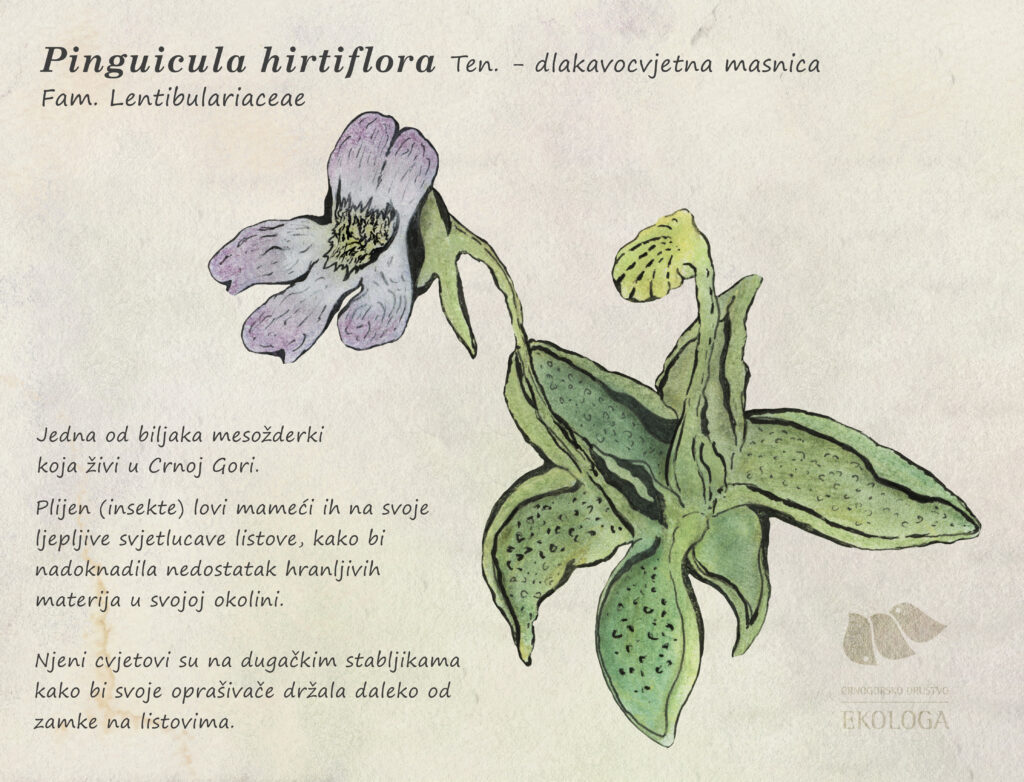Montenegro is a center of plant diversity, where we can also find a carnivorous plant – Pinguicula hirtiflora Ten. (hairy flowered butterwort).
This species lives in very specific rocky habitats, ranging from southwestern Italy, across the Balkan Peninsula to Turkey, while due to its attractiveness it has also been introduced to some Central European countries.
It is very rare, with extremely specific habitat requirements – it prefers steep, shaded, and moist habitats on rocky substrates. These habitats are poor in nutrients, to which Pinguicula has adapted by developing a mechanism to catch and feed on insects, thus compensating for the lack of nitrogen in its habitat.
This species was described in Calabria (Italy), where, due to the small population size (a few hundred individuals) and its exposure to negative impacts from the proximity of a major road, it has been cultivated in a botanical garden in that region, thus preserving the genetic material of this population outside its natural habitat.
In Montenegro, P. hirtiflora has been recorded at only a few locations, and in the canyon of the Cijevna river a special plant community of Venus’s flytrap and thick-flowered butterwort was described as Adianto-Pinguiculetum hirtiflorae Stevanović & Bulić 1989. This plant community is very rare, has a narrow distribution, and in Montenegro is known only from the Cijevna canyon.
For this reason, Pinguicula hirtiflora represents a symbol of this canyon and the entire geographic area.
Although the Protection Study for the Natural Monument “Cijevna River Canyon” prescribed strict measures that must be followed during the reconstruction of the Podgorica – Cijevna – Tamara – Vrmoša road, these measures were not respected, and at the site where this community was described, it no longer exists.
For these reasons, MES is starting research this year aimed at mapping the Cijevna canyon to find potential sites and remaining habitats of this species.
After identifying the status and possibly finding this natural rarity, a team of experts will assess the condition of the newly discovered populations and provide concrete guidelines for the recovery and real conservation of this, hopefully still present, very valuable and special species.
During the research, we will also record other important and rare plant species, among which the most famous is probably the phoenix plant – Ramonda serbica; we will assess the condition of their populations, threats, and so forth.
Our local partner in this project is the NGO Eco-Team, which will conduct a socio-economic analysis of the Natural Monument “Cijevna Canyon” area through the same project and assist us in promoting this region and its natural special features.
The research is conducted through the project “Towards Biodiversity Conservation and Strengthening Management of the Protected Area of the Cijevna River,” financially supported by EuroNatur as part of the larger BESTbelt project, funded by the European Union and EuroNatur.

